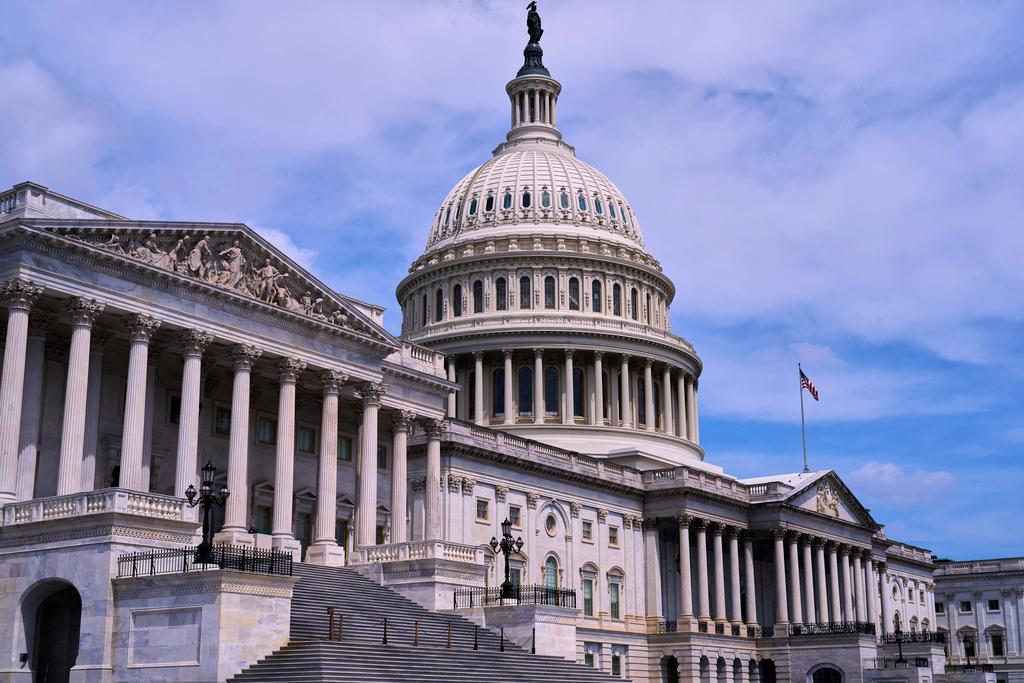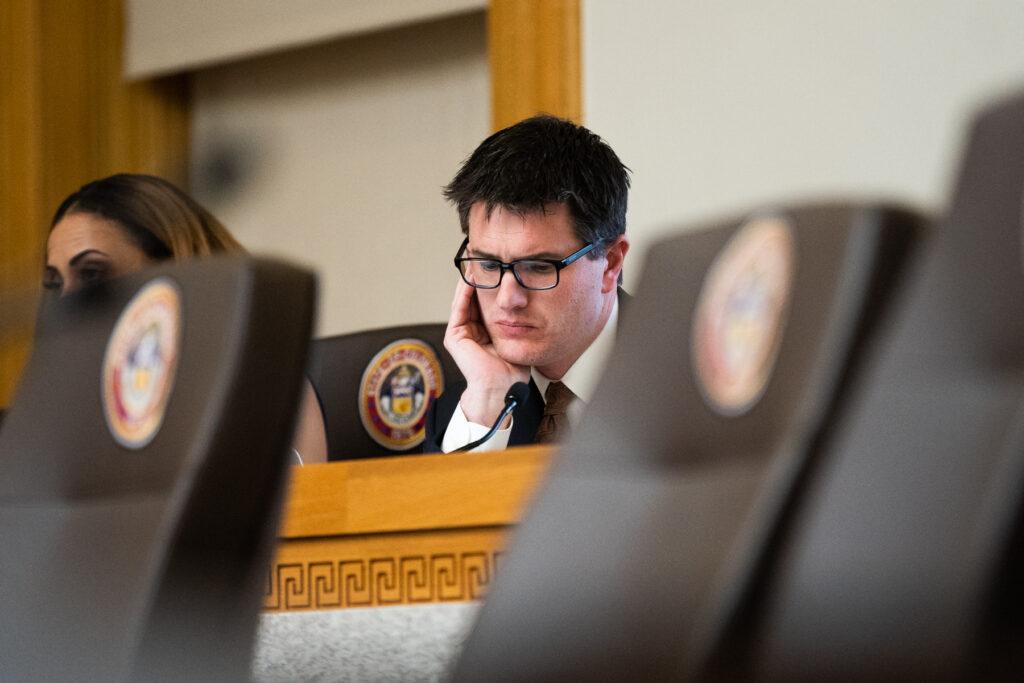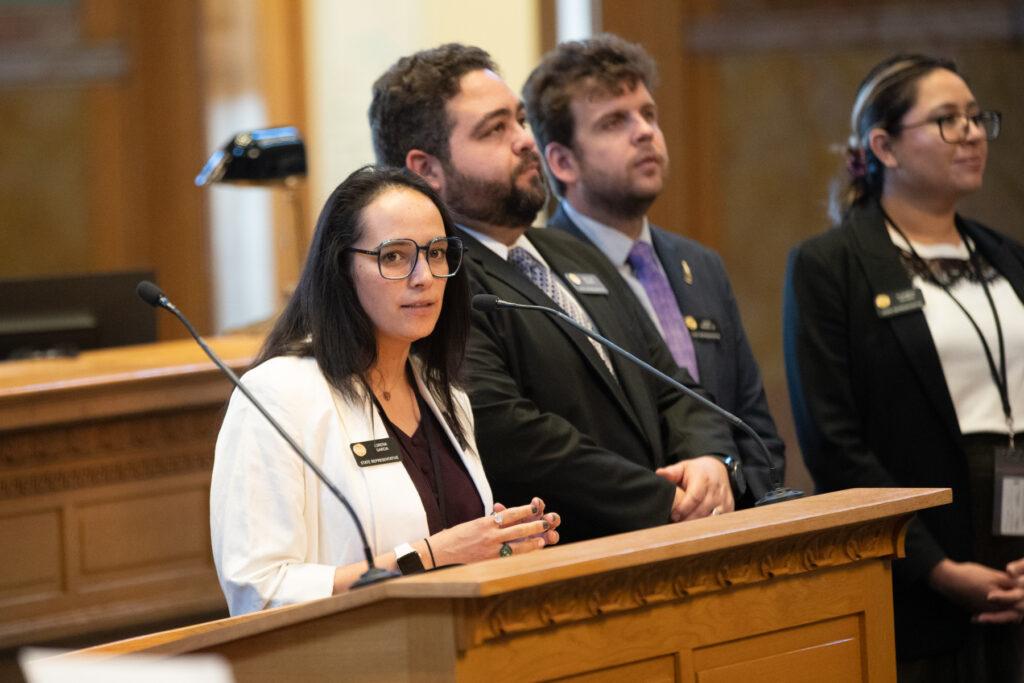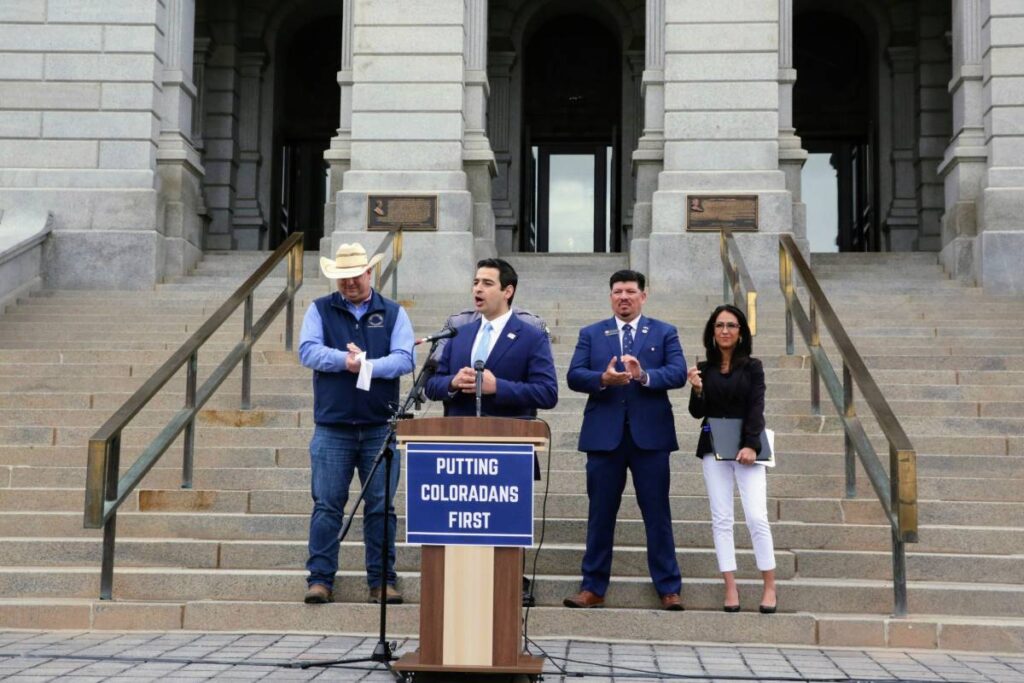
As Republicans in Congress work to push forward their ‘One Big Beautiful Bill Act’ with the goal of getting it to President Trump’s desk by July 4, Colorado Democrats who control the state legislature are closely watching federal negotiations over the massive tax and spending package that is a priority of Trump’s domestic agenda.
While it’s still uncertain of what will be in the final bill, lawmakers are worried about how the federal changes will impact the state’s bottom line — especially if congressional Republicans succeed in using the bill to try to strongarm states into changing policies they oppose.
“Right now, the federal government seems to be wanting to tell us what we can and cannot do by using this big federal funding stick and holding it over our head. That doesn't seem right to me,” said Democratic Rep. Kyle Brown of Louisville, the chair of Colorado’s House Health and Human Services Committee.
Some of the ways Republicans had hoped to force states to change their policies have so-far been ruled out of the Senate version of the bill by the Senate Parliamentarian, but even if backers can’t find a way to revive them, they represent a new front in the face off between blue states and a red Congress.
“This bill is a long way from finalized and there may be attempts in the coming days to rewrite portions of the bill to put these harmful provisions back in. While we may be breathing a temporary sigh of relief, we need to keep working to avoid harmful cuts and federal attempts to prevent Colorado from providing basic health care to our families,” said Brown.
A target on states over their health care policies
Changes to Medicaid, the federal health program for low-income children and adults, have become a huge flashpoint, especially an attempt to reduce how much money states get from the federal government if they offer state-funded health coverage to undocumented immigrants.
While undocumented immigrants are not eligible for Medicaid, three years ago, Colorado Democrats passed a bill to use state money to expand health care coverage for undocumented children and pregnant women. The Cover All Coloradans program just began enrolling people earlier this year.
The Senate parliamentarian has determined the GOP proposal to punish states that cover undocumented immigrants does not meet the requirements for the reconciliation process, known as the Byrd rule. But Republicans are likely to try to find a way to bring it back in some form. The budget reconciliation process allows the Senate to fast-track budget-related legislation with a simple majority vote.
If that provision did become law, Colorado lawmakers would have to decide whether to shutter Cover All Coloradans or give up around $300 million a year in federal funding.
Rep. Brown noted that Colorado doesn’t have an endless pot of funds to make up for lost federal support.
“We don't even have enough money to fund the programs that we have currently in Colorado because of the structural limitations of our budget,” he said. “(If) the federal reconciliation bill passes, we will have even less money. And that will mean we will have to make very difficult choices about which kids can eat, which people have access to health insurance.”

According to the state’s latest economic forecast, the next year's budget already faces a roughly $700 million shortfall to keep up with current state spending. And that estimate doesn’t include any potential changes at the federal level. Medicaid and education make up the biggest portion of the state budget and rising costs in those areas have been squeezing other state services.
“I've heard all kinds of things that we could do to reduce our Medicaid costs, and one of the options would be to cut the entire expansion population. To just say, ‘okay, we're not doing that anymore’, and that's 400,000 people who would lose their healthcare,” said Democratic Sen. Judy Amabile of Boulder, who sits on the legislature’s powerful Joint Budget Committee.
Those who lose Medicaid could try to purchase health insurance on Colorado’s exchange, but the reconciliation bill might also cut the subsidies available for them to buy private insurance.
Amabile said, depending on how quickly different provisions of the Republican bill are set to take effect, Colorado lawmakers might need to return to the statehouse this fall for a special legislative session to make sure Colorado can react to the federal changes.
For those opposed to Colorado offering public health care to undocumented immigrants, the reconciliation proposal offered a chance to force the state into a course correction. Three of Colorado’s Republican congress members have urged Gov. Jared Polis to end the program, highlighting the risk to state finances.
“While we have had long-standing objections to Colorado’s decision to cover illegal immigrants from both a fiscal and ethical perspective, there is a renewed urgency to revise this policy in light of the likely enactment of federal legislation to reduce the Medicaid FMAP for the expansion population from 90% to 80% for sanctuary states who use taxpayer dollars to cover illegal immigrants,” wrote U.S. Reps. Gabe Evans, Jeff Crank and Lauren Boebert. “As you know, this change would pose significant budgetary challenges to Colorado – but only if the state continues to pursue this policy.”
FMAP, the Federal Medical Assistance Percentage, is how much of the cost of Colorado’s Medicaid expansion population is covered by the federal government. If Republicans do find a way to tie it to care for undocumented immigrants, the resulting policy discussion could split statehouse Democrats.
Democratic state Rep. Lorena Garcia of Adams County doesn’t want her party to capitulate to any demands that may come down federally. She said the consequences of not covering essential services and basic healthcare for children and new mothers is far greater than the threats from the Trump administration.
“What the state has been doing for a while is preparing for our litigation strategy to hold to account the fact that the president has been overreaching and violating the Constitution in almost every single step he takes,” she said.
Garcia said Colorado must uphold its values as a state.
“We pass law because we believe in these laws and because we believe that the people in this state benefit from these laws. And if we are just okay with saying, ‘oh, well, we have this threat coming up, or these cuts have been made,’ I mean, we're complying and I can't comply.”

Colorado Democrats are also closely watching whether a provision on abortion makes it into the final reconciliation bill. The Senate Parliamentarian struck out language in the bill that would have prevented people from using Affordable Care Act subsidies to buy health insurance plans that cover abortion. But if Republicans can rewrite the policy in a way that passes muster, it could create immediate problems for Colorado.
Voters added an abortion rights amendment to the state constitution two years ago that explicitly requires insurance plans to cover abortion. Changing that policy would require another vote.
“Being in the constitution definitely helps,” said Democratic State Rep. Brianna Titone of Arvada. “I'm not sure how those kinds of legal situations are handled when there's a federal mandate for something that conflicts with the state constitution.”
Health care isn’t the only area where Republicans have hoped to use reconciliation to reshape state policies.
Last year, Colorado passed the nation’s first anti-discrimination law for how businesses and governments use AI systems in some of their decision-making. It is slated to go into effect next February. But the reconciliation bill includes a ten-year time-out on state-level AI regulations, with compliance tied to federal broadband funding. Earlier this week, the parliamentarian ruled that provision can stay in the bill.
Under the proposal, letting Colorado’s law go into effect would come with a huge cost to the state.
“It's $826 million from the federal Broadband Equity Access and Deployment program and $113 million from the State Capital Projects fund. And I don't know how much would be clawed back or not granted as a result of that, but it could have a significant financial impact,” said Amabile.
She said losing that kind of funding for broadband would give her a lot of pause when it comes to moving ahead to implement the state’s AI law.
“Because we absolutely need that (money). That's an equity issue,” she said. “People in underserved communities around the state don't have access to the internet and you cannot function, you can't get healthcare. There's just so much tied to that. So I think it's really a tough choice and I think we're going to really have to give that some long, hard thought.”

The debate puts lawmakers like Titone in an especially tough spot. Titone sponsored the AI law and has also been a champion of expanding broadband access. She said it’s a position she doesn’t want to be in, but when push comes to shove, it’s critical to protect people from the potential dangers of AI.
“I don't think people really quite understand this unless you're really paying attention, of what can really happen as a result of no regulation in this area, especially for 10 years, which is mind blowing that they even said 10 years because that is an enormous amount of time with AI the way it's progressing,” she said.
She’s urging her colleagues not to delay the implementation regardless of whether it ends up jeopardizing broadband money.
“It's very unfortunate and it's cruel to try to take away this funding that we want to do to connect people to make their lives better. But I think the bigger issue at this point is to put some guiderails on AI, because if we don't do it now, it can get really bad, really fast and make it even harder to put the genie back in the bottle.”
Colorado’s AI law was already facing significant pushback even before Congress began seeking a federal moratorium. A months-long task force worked to refine its provisions before it takes effect. However, they failed to reach a compromise that would pass at the statehouse. A business-led effort to delay the law’s implementation by roughly a year also failed. In light of all that, Governor Polis supports the federal moratorium, saying this issue requires a national solution.
Polis has said that if lawmakers do have to return for a special session, AI policy would likely be something they’d work on.
Caitlyn Kim contributed to this report.







